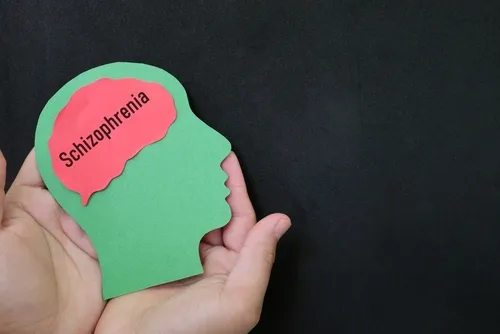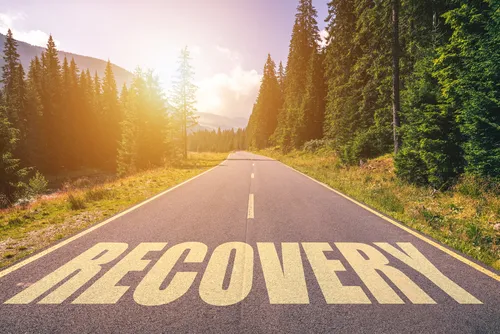At Carolina Recovery, we understand that addiction and mental health disorders often go hand in hand, making treatment for both essential for lasting recovery. Schizophrenia, a complex and chronic mental health disorder, can significantly impact an individual’s thoughts, emotions, and behaviors, making it difficult to manage daily life and relationships. For those with schizophrenia and addiction, the challenges are even greater.
Our dual diagnosis treatment program is specifically to address both addiction and the underlying mental health issues that contribute to it. Whether you’re seeking help for yourself or a loved one in Durham, Fayetteville, or Raleigh, North Carolina, Carolina Recovery is here to provide the support you need on your path to recovery.
Our team of professionals at Carolina Recovery is committed to delivering personalized, evidence-based treatment that takes into account the unique needs of individuals living with schizophrenia and addiction. With locations in Durham, Fayetteville, and Raleigh, we offer a safe, supportive environment where individuals can receive the care they deserve.
Contact us today!
What is Schizophrenia?
Schizophrenia is a serious mental disorder that affects a person’s ability to think clearly, manage emotions, and interact with others. It is a chronic condition that typically requires lifelong treatment. While the exact cause of schizophrenia remains unknown, it is believed to result from a combination of genetic, environmental, and neurological factors.
People with schizophrenia often experience episodes of psychosis, which include hallucinations, delusions, and disorganized thinking. These symptoms can be incredibly distressing and interfere with daily functioning, making it difficult to maintain relationships, employment, and personal responsibilities.
One of the biggest challenges associated with schizophrenia is that many individuals do not recognize they have the disorder. This lack of insight can make it difficult for them to seek treatment or comply with prescribed therapies. When schizophrenia coexists with alcohol abuse or drug addiction, the risk of relapse and worsening mental health symptoms increases, making comprehensive care essential.
Symptoms of Schizophrenia
Schizophrenia symptoms are typically divided into three categories: positive symptoms, negative symptoms, and cognitive symptoms.
Positive symptoms refer to behaviors or experiences not typically present in healthy individuals. These include hallucinations (seeing or hearing things that aren’t there), delusions (strong beliefs that are not based on reality), and disorganized speech or thinking.
Negative symptoms involve a lack of normal function, such as decreased emotional expression, social withdrawal, and difficulty experiencing pleasure or motivation.
Cognitive symptoms affect a person’s thinking abilities, leading to problems with memory, concentration, and decision-making.
These symptoms can significantly impact a person’s ability to function in daily life, making it crucial to seek treatment as soon as possible. When substance abuse is introduced into the equation, symptoms can become even more severe and harder to manage.
Risk Factors for Schizophrenia
While the exact causes of schizophrenia are not fully understood, research suggests that multiple factors contribute to its development, including:
- Genetics: A family history of schizophrenia increases the likelihood of developing the disorder.
- Brain Chemistry and Structure: Imbalances in neurotransmitters such as dopamine and serotonin may play a role in the onset of schizophrenia.
- Prenatal and Early Life Factors: Exposure to viruses, malnutrition during pregnancy, or complications during birth are linked to a higher risk of schizophrenia.
- Substance Abuse: The use of psychoactive drugs, particularly during adolescence, has been associated with an increased risk of developing schizophrenia.
- Chronic Stress and Trauma: High-stress environments and traumatic experiences can contribute to the onset or worsening of schizophrenia.
Understanding these risk factors can help individuals and their families recognize early warning signs and seek professional help before symptoms become unmanageable.
The Link Between Schizophrenia and Addiction
Individuals with schizophrenia are at a significantly higher risk of developing substance use disorders. Studies show that people with schizophrenia are more likely to abuse alcohol, nicotine, and illicit drugs compared to the general population. There are several reasons for this link:
- Self-Medication: Many individuals with schizophrenia turn to drugs or alcohol in an attempt to alleviate distressing symptoms such as anxiety, hallucinations, or paranoia.
- Brain Chemistry: The same brain imbalances that contribute to schizophrenia may also make a person more susceptible to addiction.
- Impulsivity and Poor Judgment: Cognitive symptoms of schizophrenia can lead to risky behaviors, including substance abuse.
- Social Isolation: People with schizophrenia often struggle with relationships and social interactions, which can lead to loneliness and increased substance use as a coping mechanism.
Unfortunately, substance abuse can worsen schizophrenia symptoms and make treatment more challenging. This is why dual diagnosis treatment—addressing both conditions simultaneously—is critical for long-term recovery.
Schizophrenia and Addiction Treatment at Carolina Recovery
At Carolina Recovery, we offer a comprehensive, integrated approach to treating schizophrenia and addiction. Our dual diagnosis program includes a combination of medication, therapy, and supportive services for people struggling with alcohol abuse or drug addiction.
Medications for Schizophrenia and Substance Abuse Disorder
Medication plays a crucial role in managing schizophrenia and preventing relapse. Antipsychotic medications help reduce hallucinations and delusions, while mood stabilizers and antidepressants can be used to address co-occurring mental health conditions. For individuals struggling with substance abuse, medication-assisted treatment (MAT) may be used to help manage cravings and withdrawal symptoms, providing a stable foundation for recovery.
Detox
Detox is a critical first step for individuals struggling with alcohol or drug dependence. We offer medically supervised detox programs for opioids, alcohol, and other drugs. Our focus is to manage withdrawal and prepare individuals for comprehensive treatment.
Cognitive Behavioral Therapy (CBT)
Cognitive behavioral therapy helps individuals recognize and change harmful thought patterns. For those with schizophrenia and addiction, CBT can provide strategies for managing symptoms, coping with stress, and avoiding substance use triggers.
Group Therapy
Group therapy allows individuals to connect with others facing similar struggles, providing a sense of community and shared understanding. At Carolina Recovery, our group therapy sessions focus on relapse prevention, healthy coping mechanisms, and building supportive relationships.
Family Therapy for Addiction
Addiction and mental health disorders affect not only the individual but also their loved ones. Our family therapy program helps educate and support family members, improving communication and fostering a more stable, understanding home environment.
Support Groups for Addiction Recovery
Long-term recovery is often reinforced through support groups such as Alcoholics Anonymous (AA) or Narcotics Anonymous (NA). Carolina Recovery encourages individuals to participate in these groups to build a strong support network and maintain accountability in their recovery journey.
Why Choose Carolina Recovery?
Choosing the right treatment center is crucial for achieving lasting recovery. At Carolina Recovery, we provide:
Experienced and Compassionate Team
Our team of dedicated professionals has extensive experience treating schizophrenia and substance use disorders. We take a compassionate, individualized approach to care, ensuring that each person receives the support they need.
Inpatient and Outpatient Rehab Options
We offer both inpatient and outpatient treatment options for alcohol and drug rehab. Inpatient rehab provides a structured, immersive environment for those who require intensive support, while outpatient programs allow individuals to receive treatment while maintaining work and family responsibilities.
High Success Rate for Addiction Recovery Programs
At Carolina Recovery, we are proud of our success in helping individuals achieve long-term sobriety. Our evidence-based treatments and supportive community create the ideal environment for recovery, empowering individuals to take control of their lives and move forward.
Continued Care and Relapse Prevention
We recognize that addiction recovery is an ongoing journey. Our aftercare programs include regular check-ins and access to resources that promote mental health and well-being. Our team works closely with people to develop relapse prevention strategies and ways to cope with addiction triggers.
Begin Your Journey to Recovery Today
At Carolina Recovery, we understand that addiction rarely occurs in isolation. For many individuals, underlying mental health disorders, such as schizophrenia, contribute to substance abuse and make recovery more complex. Schizophrenia is a chronic and severe mental health condition that affects the way a person thinks, feels, and behaves. When combined with substance use disorder, it creates unique challenges that require specialized, integrated treatment.
If you or a loved one is struggling with schizophrenia and addiction, Carolina Recovery is here to help. Our integrated dual diagnosis treatment program offers specialized care to address both conditions effectively. With locations in Durham, Fayetteville, and Raleigh, North Carolina, we are committed to providing comprehensive, compassionate treatment that paves the way for a healthier, more fulfilling life.
Contact us today to learn more about our programs and take the first step toward lasting recovery.







